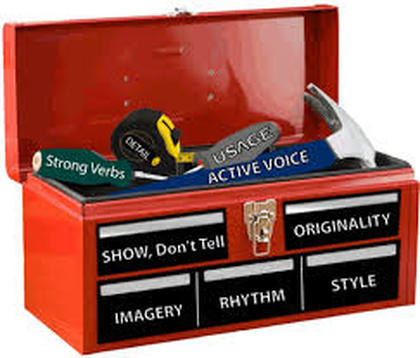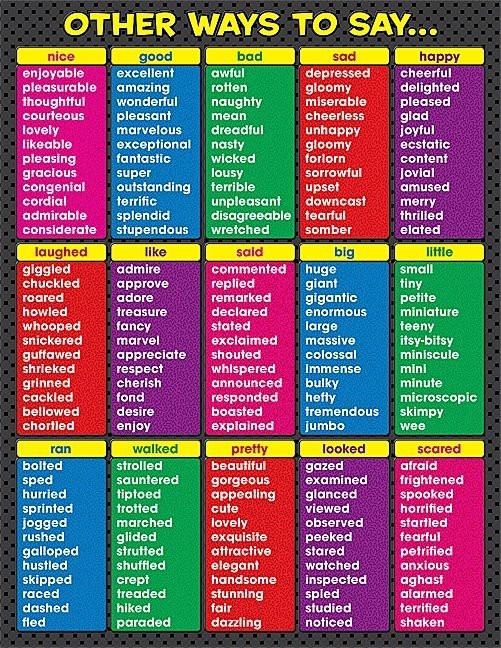EPIC Content™
Like a carpenter uses his tools to craft structural masterpieces, a writer can draft Engaging Powerful Informative Creative (EPIC) Content™ using tools from The Writer's Toolbox.
The Writer's Toolbox
Whether you are a novice or a veteran writer, you know that perfecting literary art is an ongoing process. With that in mind, don't worry that you don't use all these tools all the time. It won't always be necessary. Use them as you need to. You may need to use the same tools for different drafts or just one for a bit of fine-tuning.
Note: The Writers Toolbox is frequently updated, so bookmark or visit often!
Note: The Writers Toolbox is frequently updated, so bookmark or visit often!
Rhetorical Devices
Ethos: Ethical appeal uses the character or credibility of the speaker to persuade (e.g., a car commercial that uses the President to sell it).
Logos: Logical appeal uses statistics and facts to persuade (e.g., a car commercial that uses facts about the car to sell it).
Pathos: Emotional appeal uses emotion to persuade (e.g., a commercial that shows a family in a near-accident being saved by wearing their seat belts to sell a car).
Kairos: Urgent appeal uses time constraints to persuade (e.g., a car commercial that persuades by saying, "time is running out," "today only," etc.)
Logos: Logical appeal uses statistics and facts to persuade (e.g., a car commercial that uses facts about the car to sell it).
Pathos: Emotional appeal uses emotion to persuade (e.g., a commercial that shows a family in a near-accident being saved by wearing their seat belts to sell a car).
Kairos: Urgent appeal uses time constraints to persuade (e.g., a car commercial that persuades by saying, "time is running out," "today only," etc.)
Diction
Diction is the choice and use of words and style when speaking or writing. It includes accent, intonation, inflection, enunciation, quality of speech-sound. All of the following are examples of asking for a container of tea using various diction methods:
Formal: Used during press conferences, speaking engagements, toasts or other formal engagements. (e.g., Could you be so kind as to pass me the cozy of tea?)
Informal: Used when talking with friends. (e.g., Pass me the pitcher of tea.)
Slang: Used when language is used informally and is not a part of standard vocabulary. (e.g., Turn up means let's party.)
Colloquialisms: Used to effect realism when a writer is influenced by a particular region. (e.g., Making groceries for grocery shopping; Yo son for hello friend; the truth don't hurt unless it ought to for if someone hurts your feelings, humble yourself enough to determine if what they said is true.)
Formal: Used during press conferences, speaking engagements, toasts or other formal engagements. (e.g., Could you be so kind as to pass me the cozy of tea?)
Informal: Used when talking with friends. (e.g., Pass me the pitcher of tea.)
Slang: Used when language is used informally and is not a part of standard vocabulary. (e.g., Turn up means let's party.)
Colloquialisms: Used to effect realism when a writer is influenced by a particular region. (e.g., Making groceries for grocery shopping; Yo son for hello friend; the truth don't hurt unless it ought to for if someone hurts your feelings, humble yourself enough to determine if what they said is true.)
Academic Vocabulary
Figurative Language
Click the title to learn how literary devices add spice and move your writing forward!
Ten Things That Make Me Smile
Don't bore me! Click the title and figure out how to make your writing poetic, rhythmic, eloquent, sassy, fun, exciting and more!

